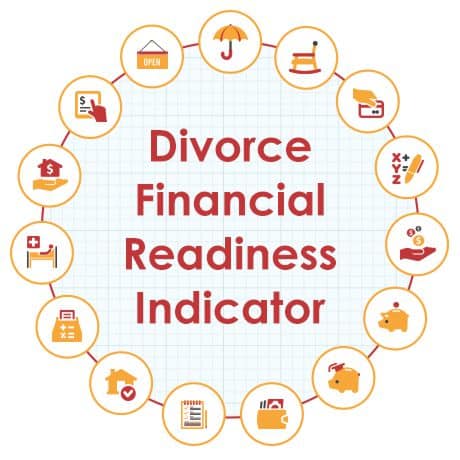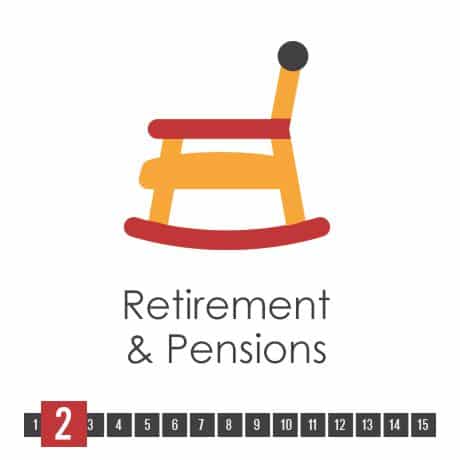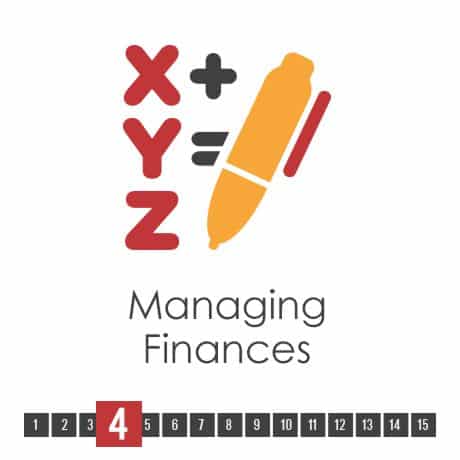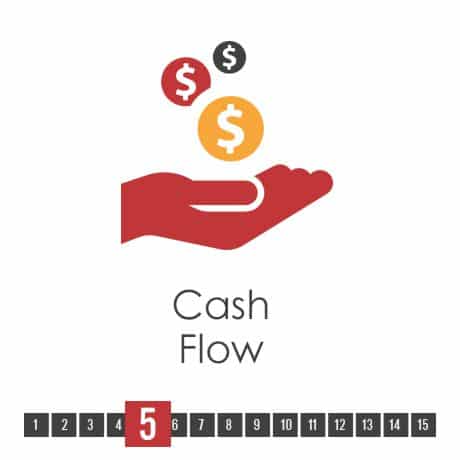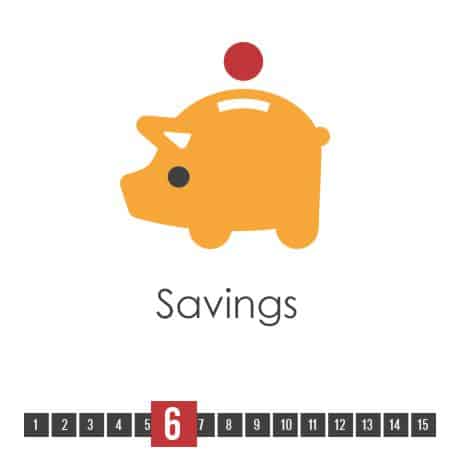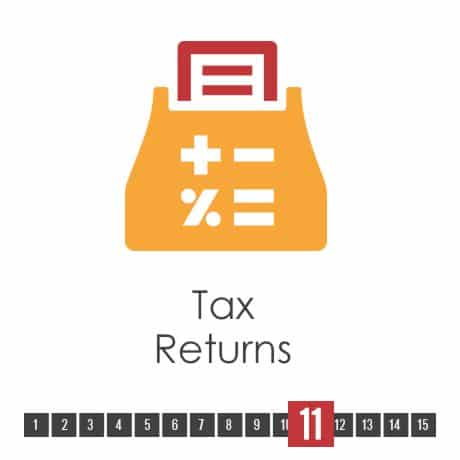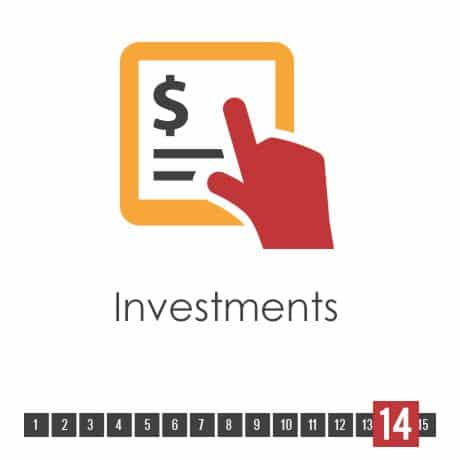Divorce Survival Guide – Aviod Financial Hardship After Divorce

Surviving Divorce: Thriving Beyond
You are going to not only survive, you are going to thrive. Yes, this is where you’re at now. It feels like. It is overwhelming. It feels like failure. It feels like you can’t go on. You are going to take a deep breath, and you are going to focus, and you are going to march on, and march on. And you’re going to surround yourself with a support system. Surround yourself with people who love you and support you. Put the past behind you and look forward. Your dreams are not over. Your life is not over. Yes, it isn’t straightforward. But you are going to thrive and blossom. And I wish you the best one.”
Nurturing Mental Health and Well-being
During the divorce process, it’s crucial to maintain your mental health. Feelings of sadness, anger, and loneliness are common, but focusing on self-care—eating well, engaging in new activities, and making new friends—can significantly improve your emotional state. Avoid making rash decisions driven by emotions; focus on your long-term well-being and moving forward.
Building a Supportive Network
Lean on loved ones for support. These people can provide strength and encouragement when you feel overwhelmed. Additionally, consider joining online divorce support groups where you can connect with others experiencing similar challenges.
Planning for a Brighter Future
Looking ahead, focus on establishing a solid foundation for your financial future. Consult with a divorce financial analyst to understand your financial situation better and plan accordingly. Address immediate concerns such as health insurance and adapt your budget to reflect your new circumstances.
Cultivating New Interests and Relationships
As you let go of the past and move forward, finding new hobbies and interests can be incredibly fulfilling. These activities not only help you to rebuild your life but also prevent feelings of isolation. Opening yourself up to new relationships can further enrich your journey when you’re ready.
Thriving After Divorce
Remember, the first year post-divorce is often the hardest but also a time of immense personal growth and rediscovery. Embrace this period with an open heart and mind. You may find that, in time, you are stronger and more resilient than you ever knew possible.
“Stop living in the past and looking back. Instead, focus on creating a future where you can thrive, surrounded by love and support. Remember, your journey doesn’t end here; it’s just taking a new, exciting direction.
Navigating the tricky waters of divorce is a harrowing story many couples, unfortunately, find themselves in, where a once united pair must untangle their lives from one another. The emotional toll of divorce is well-documented, but the financial parts often come as a surprise, leaving many in a state of shock and hardship. In this divorce survival guide, we delve into the financial implications of divorce for both genders, providing insights to help you survive the storm
For women, the aftermath of divorce can be severe. Beyond the likelihood of financial strain, they may also confront societal judgment and bias. Divorced women, particularly those with children, may find it challenging to re-enter the dating world or establish new relationships. Maintaining existing friendships and social networks can also be a struggle, as earlier friends may choose sides or create distance.
However, the pain of divorce isn’t exclusive to women. Men also have various negative emotions, including anger, bitterness, and depression. They may mourn the loss of their marriage and find it difficult to adapt to life without their ex-spouse. Men who were the primary source of household income may face financial challenges, especially if they’re responsible for the child or spousal support
Regardless of gender, divorce is a complex and painful journey. It’s in the best interest of both parties to seek support from family, friends, or a therapist to cope with the emotional fallout. Honest conversations with a financial advisor or divorce lawyer can also be beneficial, ensuring both parties are financially protected during the divorce proceedings. This includes understanding the tax implications, future pensions, health insurance, and other future benefits. The goal is to make sure the divorce settlement and decision-making process are fair and equitable, providing a way to finally answer the burning question of how to navigate and survive the divorce process.
Financial Hardship After Divorce
How long does it take a man to recover from divorce financially?
A research initiative sponsored by UBS Wealth Management revealed that, on average, men require about three years to survive a divorce and regain their financial footing. The study found that men generally adapt faster to new financial realities due to a more robust financial standing and a higher propensity for risk-taking. They also seem more open to seizing new opportunities that present themselves. However, finally, answer the question that the time taken to bounce back from the financial parts of a divorce settlement varies greatly based on individual circumstances.
Several factors, such as the duration of the marriage, the financial situation preceding the divorce, the division of assets, and children, can all influence the time it takes for a man to survive a divorce financially. For example, if the marriage was relatively short-lived, say less than five years, the financial implications of the divorce might not be as severe as those resulting from a long-term marriage. Similarly, a financially stable man before the divorce proceedings might recover faster than someone already in a bad situation financially.
The division of assets can also significantly affect the time it takes for a man to handle things and recover financially from a divorce. A divorce settlement that favours the man might expedite his financial recovery. However, if the settlement benefits the spouse, he might have financial difficulties for several years.
Child support and custody issues can also influence how long a man can recover financially from a divorce. If the man must pay child or spousal support, it could substantially reduce his disposable income or future pension, making it challenging to regain his financial footing. However, he might recover more quickly if he shares custody or if the children are grown.
While the average time it takes for a man to recover financially from a divorce is about three years, it’s crucial to remember that circumstances can significantly change this timeline. Men must seek financial advice and plan carefully to recover quickly, enjoy life, and move forward toward a happy life. It takes time, but surviving divorce and moving forward is possible with the right support and guidance.
How long does it take a woman to recover from divorce financially?
Navigating the financial aftermath of a divorce can be daunting, particularly for women. As per UBS Wealth Management, it may take a woman up to five years to regain her financial footing post-divorce. This is due to a multitude of challenges that can make the road to financial recovery steep.
Legal Expenses
One of the most substantial financial burdens during divorce proceedings is the legal fees. The cost of hiring a divorce attorney can escalate quickly, especially if the divorce process is fraught with contention. In addition, women may need to engage other professionals like financial planners or a mediator to guide them through the divorce process. These expenses can significantly deplete a woman’s savings, making the financial recovery more difficult.
Child Care Cost
Child care is another significant expense that can hinder a woman’s financial recovery post-divorce. If the woman is a mother, she may have to bear the cost of child care while she is at work or pursuing education. This can be a substantial expense, particularly if the children are young and require full-time care. Additional costs such as after-school activities, summer camps, and other child-related expenses can further strain the limited resources.
Housing Expenses
Post-divorce, housing can become a major financial concern. If the matrimonial home was co-owned with the former spouse, the woman may need to seek a new place to live. This can be a substantial expense, especially if she needs to rent or buy a new family home. Additional costs such as utilities, maintenance, and other home-related expenses can add to the financial burden.
Remarriage Considerations
While remarriage may offer some women a financial cushion, it is not a guaranteed solution and should not be the first step toward financial recovery. Women must focus on establishing their financial stability independently. Depending solely on a partner for financial support is not advisable. A robust plan to manage living expenses and generate post-divorce income is essential.
For many women, bouncing back financially from a divorce can be a marathon, not a sprint. Having a strategic plan to handle financial matters and create income streams is vital. Seeking guidance from professionals such as lawyers and financial advisors may be essential to steer through the divorce process and reach a state of financial stability. Remember, the objective isn’t just to scrape by and ensure a secure and stable financial future.
How do you survive financially after divorce?
The road to financial stability and independence after a divorce is challenging. It helps to have a roadmap in place to help navigate this process. Here are strategies that can help:
Take stock of your finances:
Assess your income, expenses, assets, and liabilities. This will help you understand where you stand and chart your course. Have a clear picture of your financial situation after a divorce. Take the time to gather all of your financial documents, including bank statements, investment accounts, and tax returns. This will give you a comprehensive view of your finances and help you make informed decisions about your future.
Create a budget: With a clear understanding of your finances, draw up a realistic budget considering your income, expenses, and debt obligations. Creating a budget can be daunting, but it’s essential to achieving financial stability after a divorce.
List your monthly expenses, including rent or mortgage payments, utilities, food, and transportation costs.
Then, compare your total expenses to your income to see where you stand. If your expenses exceed your income, look for areas where you can cut back or consider increasing your income.
Develop financial knowledge and skills:
Take the time to learn about personal finance, investing, and budgeting. This knowledge will be invaluable as you move forward. Financial literacy is key to achieving financial independence after a divorce.
Consider taking a personal finance course or reading books on investing and budgeting. This will help you make informed decisions about your finances and set you on the path to long-term financial success.
Explore all available income sources:
Consider different income sources, such as part-time jobs, entrepreneurship opportunities, or investments. After a divorce, exploring all available income sources to supplement your primary income is important.
Look for part-time job opportunities that fit your schedule and skills. Consider starting your own business or investing in stocks or real estate to generate more income streams.
Consider debt consolidation and restructuring:
Consider lowering your debt by combining high-interest debts into a single, manageable payment plan. Debt can be a major obstacle to achieving financial stability after a divorce.
Consider consolidating your debts into a single, low-interest loan to reduce your overall interest payments. You can also work with a credit counsellor to develop a debt management plan for your budget and financial goals.
Consider working with a financial advisor:
Professional advice can go a long way in helping you navigate the financial aftermath of a divorce. A financial advisor can provide valuable guidance and support as you navigate the complex financial landscape after a divorce.
They can help you develop a long-term financial plan, manage your investments, and provide ongoing support as you work towards your financial goals.
Assessing the Impact of Divorce on Your Finances:
Divorce can be a difficult and emotional process, but it’s important to consider the financial implications of a split. One of divorce’s most significant financial costs is related to assets such as real estate, pension plans, and bank accounts.
Understand the value of these assets and how they will be divided between the two parties. This can be a complex process, especially if there are disagreements between the two parties. Another important factor to consider is the impact of divorce on one’s credit score.
The divorce process can affect credit scores, particularly if outstanding debts or joint accounts need to be resolved. Monitor credit scores and address any issues that arise as soon as possible.
- On a positive note, the divorce process can also provide opportunities for tax savings. For example, if the couple sells their home as part of the divorce settlement, they may be eligible for a capital gains tax exclusion. Additionally, payments received for support may be tax-deductible for the recipient and taxable for the payer. Consult with a tax professional to understand the tax implications of a divorce.
- Consider the long-term financial impact of divorce. For example, if one party was the primary breadwinner, the other party may have the right to spousal support. Consider the amount of support needed and the duration of the payments. Child support payments may also need to be considered if children are involved.
Overall, divorce can have a significant impact on one’s finances. Consider the financial implications and work with professionals, such as lawyers and financial advisors, to navigate the process and ensure one’s financial future is secure.
How do I start a fresh life after divorce?
In the aftermath of a divorce, the first step towards a fresh start is often daunting. For most people, this involves reestablishing financial stability and security. This usually means creating a robust financial plan considering as much information about your current and future financial situation as possible.
One of the key components of this plan should be establishing an emergency fund. This fund can provide a safety net during unexpected expenses or sudden changes in your post-divorce income. It’s a crucial part of ensuring you have enough money to maintain your standard of living, even when unforeseen circumstances arise.
Another critical aspect of your financial plan should be saving for retirement. While this might seem like a distant concern, especially when dealing with the immediate financial burden of a divorce, it’s an investment that will pay off in the long run. Remember, your financial life doesn’t end when your marriage does. It’s just the beginning of a new chapter.
In many cases, divorce means learning to live with limited resources. This adjustment can be challenging, especially if you’re used to sharing expenses with a partner. It’s essential to take a hard look at your living expenses and make adjustments where necessary. This might mean downsizing your living situation, cutting back on non-essential expenses, or finding ways to increase your income.
Dividing assets is another crucial aspect of the divorce process. This process can be complex and emotionally charged, but it’s a necessary step toward achieving your financial goals. It’s important to approach this task with a clear mind and as much information as possible. A financial planner can be a valuable resource, providing guidance and support as you navigate these challenging money issues.
Finally, it’s important to remember that your divorce agreement is not just a document that ends your marriage. It’s also a roadmap for your financial future. It outlines your responsibilities and rights, and it can significantly impact your living standard post-divorce. Therefore, it’s crucial to understand every aspect of your agreement and how it affects your financial life.
In conclusion, starting a new life after a divorce is not just about emotional healing. It’s also about taking control of your financial situation and making decisions that support your long-term financial health. With careful planning and support, you can navigate this challenging time and emerge with a strong financial foundation for your new life.
Debunking Misconceptions about Divorce Financial Planning – Video
Surviving and Thriving Financially After Divorce
Surviving a divorce may feel like an uphill battle, especially regarding the financial aspects. However, it’s essential to remember that while it may be a challenging journey, it’s not impossible. With patience, resilience, and informed financial decisions, you can survive a divorce and rebuild a solid financial foundation.
Divorce can significantly impact your household income, and it’s not uncommon to feel lonely and overwhelmed in the face of such changes. But take a few deep breaths, and remember this is temporary. It’s crucial to be prepared and understand the costs of divorce, as this knowledge can help you handle things better and mitigate the negative consequences.
Rebuilding your financial independence might seem daunting, especially in the peak earning years of your life. However, it’s possible and necessary for your future benefit. It’s about taking one step at a time, focusing on the little things that make the most sense in the long run.
Surviving a divorce and moving forward to a happy life is about more than just getting through the bad news of a divorce. It’s about enjoying life, even if it takes a little longer than expected. In many cases, the process of rebuilding can take several years. But remember, it’s not a race. It’s about making the most of your new life and creating a future where you feel secure and content.
In the daily life post-divorce, you might spend less time in the family home that once housed many marriages. This change can be a lot to handle, but it’s also an opportunity for a fresh start. It’s about finding the silver lining in a bad situation and using it as a stepping stone to move forward.
In the end, remember that most people have the strength to survive and thrive after a divorce. It takes time, patience, and resilience, but you can navigate this challenging time with the right mindset and sound financial decisions.
So, take a deep breath, consult a certified divorce financial analyst if necessary, and start the journey toward financial recovery and a fulfilling life.
Conclusion
Our comprehensive Divorce Financial Readiness Indicator, aka divorce survival guide, has been expertly designed to help you navigate the tumultuous waters of divorce litigation or divorce mediation and the complex divorce process. We aim to turn the concept of divorce survival into a reality.
We understand that a good friend and a guide acting in your best interest can make all the difference during this challenging period. We’ve crafted this guide inspired by harrowing stories of numerous women and men finding their way through the maze of modern wealth management during a divorce. We aim to help you find peace amidst the chaos and equip you with informed decision-making skills.
The burning question is, are you ready to face the hard data and take the necessary steps toward your financial readiness? We specialize in helping individuals experiencing transition through divorce and have already helped thousands answer this most burning and hardest question.
So, are you ready to take the first step toward your future? Your survival guide begins with our Divorce Financial Readiness Indicator Online Assessment. Start your journey to financial independence today, and complete your assessment here:
Articles that may interest You!
Master Your Divorce: Improve Your Financial Readiness with the DFRI Online Assessment
Your DFRI, or Divorce Financial Readiness Indicator, is a crucial measurement of how effectively you can navigate your financial landscape during a separation or divorce.
It evaluates your proficiency in vital areas like
- Life Insurance
- Retirement and Pensions
- Credit Cards
- Savings
- Cash Flow Management
- Post-secondary Expenses for Children
- Separate Property
- Family Property
- Mortgages
- Tax Returns
- Disaster Preparedness
- Matrimonial homes
- Investments
- Business-related aspects
The savvy ones who truly know their money tend to make smarter financial decisions in these trying times.
Here’s the remarkable aspect of DFRI: unlike IQ, which relies heavily on the genetic lottery, financial intelligence is a skill that can be acquired. The best part? It’s far from rocket science, especially when a solid Divorce Survival Plan is in action.
These 15 areas are fundamental to achieving a fair settlement, that you must equip yourself with knowledge and preparation before any negotiation attempts.
I feel so passionately about this that I devised a unique self-assessment process called the Divorce Financial Readiness Indicator. It consists of a preliminary interview followed by detailed feedback, and my clients find it incredibly beneficial.
Here’s how it works:
You’ll respond to 15 multiple-choice questions via an online platform. Based on your responses, I’ll provide written feedback for each question and an action plan to address each area.
I’m thrilled to extend this transformative service to you online.
Please try it out and undergo the online DFRI assessment. I’ll eagerly await your completed review.
And remember – schedule your complimentary follow-up call after you finish the DFRI. Let’s take this crucial step together on your journey to financial readiness.
Ken Maynard CDFA, Acc.FM
I assist intelligent and successful couples in crafting rapid, custom separation agreements that pave the way for a smooth transition towards a secure future. This efficient process is achieved in about four meetings, effectively sidestepping the excessive conflicts, confusion, and costs commonly linked to legal proceedings. Clients have the flexibility to collaborate with me either via video conference or in-person through a DTSW associate at any of our six Greater Toronto mediation centers, located in Aurora, Barrie, North York, Vaughan, Mississauga, and Scarborough.
Have a few questions - Tap here to Schedule a Get Acquainted Call
-
Ken Maynard CDFA, Acc.FMhttps://divorcethesmartway.ca/author/wardman/May 23, 2023
-
Ken Maynard CDFA, Acc.FMhttps://divorcethesmartway.ca/author/wardman/June 2, 2022
-
Ken Maynard CDFA, Acc.FMhttps://divorcethesmartway.ca/author/wardman/May 20, 2022


